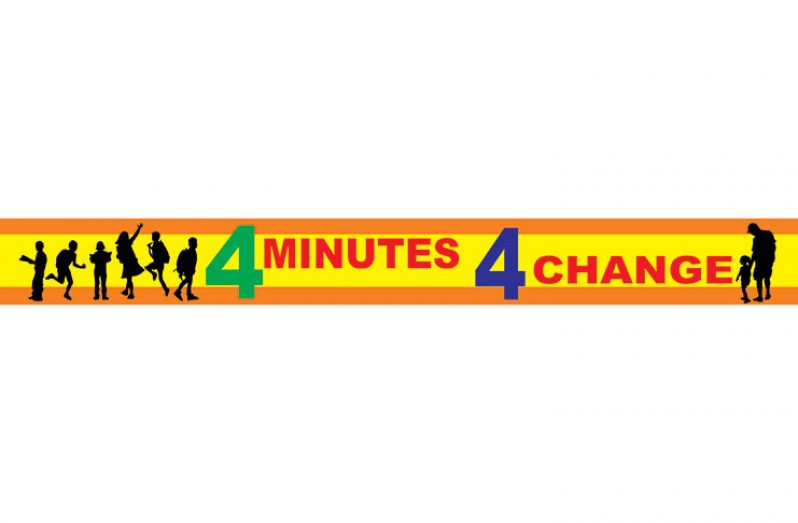IT might sound a little ridiculous to some people, that this week’s ‘4 minutes 4 change’ is about something as basic as teaching children good manners. But every day it seems as if more of our fundamental values are diminishing and parents are failing to instill simple everyday ethics into their children’s lives — ethics that once were a mere formality.
When children are taught the importance of good manners they are learning a lesson for life. There is an adage that states ‘manners maketh man’, meaning that when you have good manners you are well on your way to being a well-rounded man (or woman).
Having good manners is not just about saying ‘please’ and ‘thank you’ at the appropriate times, or, whether or not you remember to say ‘good morning’ on entering a bus, as many Guyanese do. While these good traits are certainly commendable and worthwhile, having good manners goes a little deeper and has a lot to do with acquiring and showing genuine respect for your fellowman.
So many of our young people do not say ‘thank you’ or show any type of appreciation for things that have been done, or are being done for them: and when they are given a gift, they are unaware that the correct thing to do is thank the person who gave the gift — regardless of the value or importance of the gift.
Some children are never taught how to be thoughtful of others or how to feel and show genuine gratitude when someone has been thoughtful towards them. We often hear the cliché, ‘it’s the thought that counts’, but with some folk, the ‘thought’ behind a person’s positive or nice gesture, doesn’t even register, let alone ‘count.’
The ideal environment for growing children is one where they are able to internalise the positive values portrayed by their parents, as these values can see them through life. But in some cases, parents may need to ‘teach’ their children that gratitude and good manners are just two of many virtues which will help them along the way.
How parents interact with their children is linked closely to the lack of manners that children tend to portray, as it is more likely to be the parents who would have condoned the negative behaviour to some extent in the first place. This may have come about through parents indulging their children’s behaviour, rather than ‘pulling them up’ or letting them know, that ingratitude to those who are considerate toward you, is unacceptable.
Maybe some parents even failed to explain that humility and thankfulness are two desirable qualities that they should seek, adopt and nurture: regardless of how poor or affluent they might be, valuable assets cannot be bought or sold.
People sometimes find excuses for children who grow without the guidance of a parent. If they fail to show gratitude or forget their manners, they say, ‘these children grow without training’. But this is only a myth as children who grow with both parents can still fail to have good manners and vice versa.
Another thing that people tend to say about young people and their lack of gratitude is, ‘that is how young people stay nowadays…’ but this is not true, and neither should anyone accept that ‘bad manners’ is a common trait of this present generation.
Children portray the behaviour that is taught in their households and accepted by their families, but that doesn’t automatically make it the correct behaviour, or that another adult has no right to correct a child discreetly. Any adult who has good intentions and the right approach can do the job, because ‘good manners’ is something that children need to possess.
The onus is on parents (and all conscious adults) to teach children how to be genuinely grateful, considerate and thoughtful of others; to show respect and to be courteous, sincere and compassionate. These fundamental values seem to be ebbing away as parents and caregivers become busier than ever and children are left to their own vices and devices, from which they receive very little guidance.
If you have children, or you work with children, do not overlook this simple fact: adults really do need to teach them some of the most basic lessons in life. Make it your obligation to have some positive input in a child’s life today.
If you are concerned about the welfare of a child, call the Childcare and Protection Agency’s Hotline on 227 0979 or write to us at childcaregy@gmail.com













